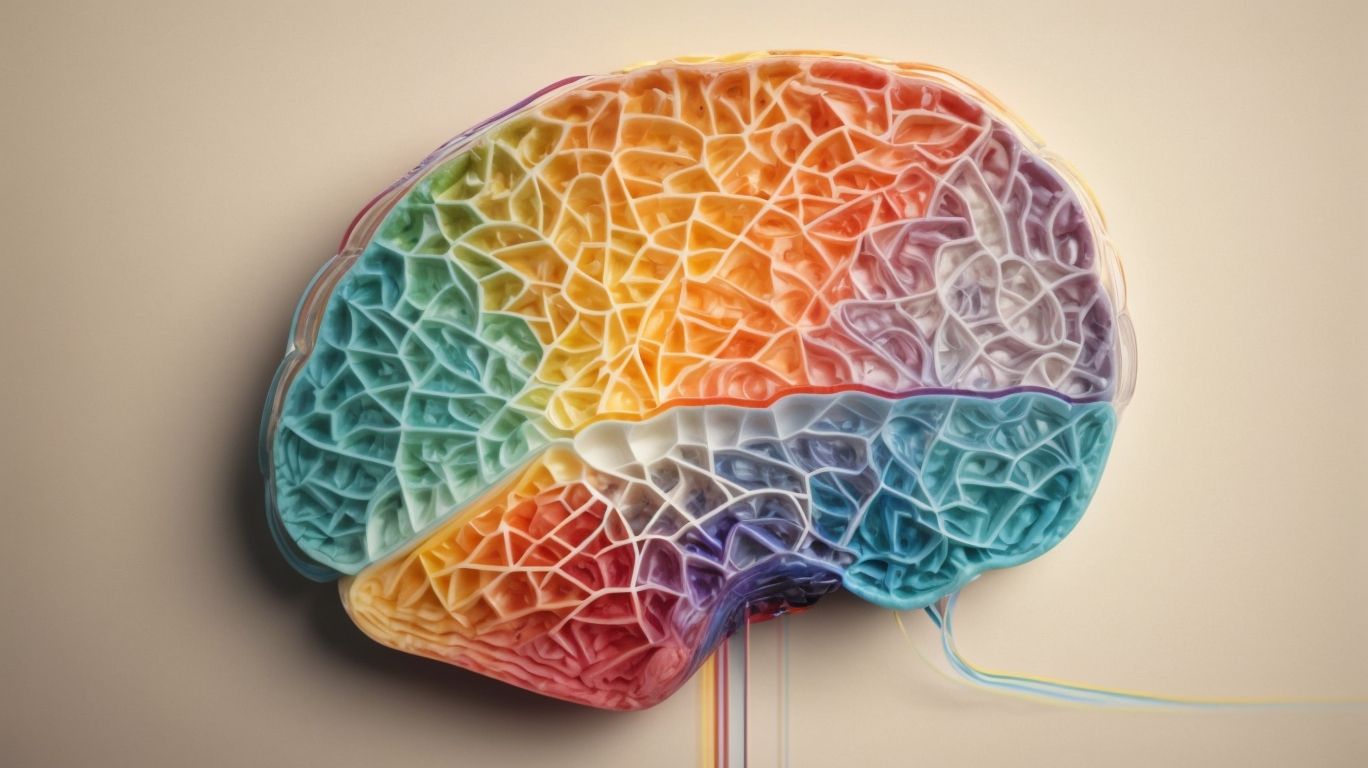Have you ever wondered how humans grow and develop from infancy to adulthood? Developmental psychology seeks to answer this question by examining the various stages of human growth and the factors that influence our development.
In this article, we will explore why developmental psychology is important, the key theories that shape our understanding of human development, how it impacts education, and the practical applications in areas such as parenting, mental health, and social work. Join us on this fascinating journey into the world of developmental psychology.
Contents
- 1 What Is Developmental Psychology?
- 2 Why Is Developmental Psychology Important?
- 3 What Are the Key Theories in Developmental Psychology?
- 4 How Does Developmental Psychology Impact Education?
- 5 What Are the Applications of Developmental Psychology?
- 6 Frequently Asked Questions
- 6.1 What is developmental psychology?
- 6.2 Why is understanding developmental psychology important?
- 6.3 How does developmental psychology impact education?
- 6.4 What are some key theories in developmental psychology?
- 6.5 How does developmental psychology impact mental health?
- 6.6 Can developmental psychology be applied to other areas?
What Is Developmental Psychology?
Developmental psychology is a branch of psychology that focuses on studying how individuals evolve and grow across the lifespan, encompassing various aspects of human development such as cognitive, social, emotional, and physical changes.
Within developmental psychology, researchers explore how people develop from infancy through old age, examining how genetics, environment, and experiences interact to shape individuals’ growth.
This field delves into the complexities of human nature, studying< b> developmental milestones and the impact of factors like family dynamics, culture, and societal influences on individuals’ progression.
Key areas of focus include
- cognitive development, involving how individuals think, reason, and problem-solve,
- social development, which explores how individuals form relationships and interact with others,
- emotional development, which examines the growth of emotional awareness and regulation, and
- physical development, encompassing changes in motor skills, sensory perception, and overall physical well-being.
Why Is Developmental Psychology Important?
Understanding the significance of developmental psychology is crucial for gaining insights into the various stages of human growth and development, exploring prominent theories proposed by renowned psychologists such as Erik Erikson, Jean Piaget, and Sigmund Freud.
Developmental psychology plays a vital role in comprehending how individuals grow and change over time, shedding light on the complex processes that occur from infancy to old age. Each stage of development, as proposed by these influential psychologists, brings forth unique challenges and milestones that contribute to shaping an individual’s personality and behavior.
For instance, Erikson’s psychosocial theory emphasizes the importance of resolving crises at each stage of life to achieve healthy development, while Piaget’s cognitive development theory focuses on how children actively construct their understanding of the world. Freud’s psychosexual theory, on the other hand, highlights the role of early experiences in shaping an individual’s unconscious desires and motivations.
Understanding Human Growth and Development
Exploring human growth and development through the lens of developmental psychology provides invaluable insights into the sequential changes individuals experience from infancy to adulthood, examining significant developmental milestones identified by pioneering psychologists such as G. Stanley Hall.
One of the pioneering figures in developmental psychology, G. Stanley Hall, laid the groundwork for understanding the intricate processes at play during different life stages. From the sensorimotor stage in infancy – marked by crucial developments in sensory perception and motor skills – to the cognitive leaps during the concrete operational stage in middle childhood, human growth unfolds in a series of intricate phases. Psychological theorists continue to build upon Hall’s foundational research, shedding light on the complexities of emotional, social, and cognitive growth that shape individuals throughout their lives.
Identifying Developmental Milestones
Identifying developmental milestones is a fundamental aspect of developmental psychology, encompassing the use of tools such as the Bayley Scales of Infant and Toddler Development to assess children’s cognitive, motor, and socio-emotional progress.
By recognizing these milestones, professionals gain valuable insights into a child’s overall development, enabling early intervention strategies if needed. The Bayley Scales are particularly instrumental in evaluating various domains, like language skills or fine motor coordination, allowing for targeted support. It is crucial to monitor developmental progress continuously as it offers benchmarks for age-appropriate behaviors and abilities.
Using standardized tools like the Bayley Scales provides a systematic approach to comparing a child’s development against established norms. This comparative analysis aids in identifying potential delays or deviations from the typical trajectory, indicating areas that may require further attention or intervention.
Exploring Individual Differences
Exploring individual differences in developmental psychology involves understanding how unique environmental, genetic, and societal factors influence each person’s growth trajectory, drawing insights from the ecological systems theory proposed by Urie Bronfenbrenner.
Urie Bronfenbrenner’s ecological systems theory emphasizes the interconnectedness between an individual and their environment, categorizing influences into different levels ranging from the immediate microsystem to the overarching macrosystem.
These various systems, such as the family, school, peers, and culture, play pivotal roles in shaping a person’s development and behavior.
Moreover, individual differences manifest in diverse ways, from cognitive abilities and emotional intelligence to social skills and personality traits.
Recognizing the Impact of Environment and Experiences
Recognizing the profound influence of environmental factors and personal experiences on human development is a central tenet of developmental psychology, emphasizing the role of observational learning and social interactions in shaping individuals’ cognitive and emotional growth.
This recognition underscores the intricate interplay between an individual’s surroundings, experiences, and internal processes. Environmental factors, such as family dynamics, socio-economic status, and cultural influences, play a crucial role in molding cognitive functions and emotional responses.
By observing and interacting with others in various social contexts, individuals acquire new skills, attitudes, and behaviors. This observational learning process is a key mechanism through which people learn and adapt, internalizing norms and values established within their communities.
What Are the Key Theories in Developmental Psychology?
Developmental psychology encompasses several key theories proposed by eminent psychologists such as Jean Piaget, Erik Erikson, Lev Vygotsky, and John Bowlby, offering profound insights into cognitive, social, and emotional development.
One of the foundational theories in developmental psychology is Piaget’s theory of cognitive development, which emphasizes the stages through which children develop their understanding of the world.
Erikson’s psychosocial theory, on the other hand, focuses on the psychological tasks individuals face at different stages of life.
Vygotsky’s sociocultural theory highlights the importance of social interaction in cognitive development, while Bowlby’s attachment theory underscores the significance of early relationships in shaping emotional bonds.
Piaget’s Theory of Cognitive Development
Piaget’s theory of cognitive development revolutionized the field of developmental psychology, proposing a framework that delineates the sequential stages of children’s intellectual growth and their evolving understanding of the world.
At the core of Piaget’s theory are the four key stages of cognitive development: the Sensorimotor Stage, the Preoperational Stage, the Concrete Operational Stage, and the Formal Operational Stage. These stages represent the progressive acquisition of knowledge and skills through interaction with the environment and adaptation to new information. Piaget emphasized the role of active exploration and experimentation in children’s learning processes, highlighting how they construct their own knowledge through assimilation and accommodation.
Erik Erikson’s theory of psychosocial development highlights the interplay between individual identity formation and social interactions across different life stages, offering a comprehensive framework for understanding the challenges and growth opportunities individuals face.
One of the key aspects of Erikson’s theory is its focus on the various stages of psychosocial development that individuals navigate throughout their lives. These stages, from infancy to old age, represent critical junctures where individuals grapple with specific psychosocial conflicts that shape their sense of self and relationships with others. For instance, the stage of ‘Trust versus Mistrust’ in infancy emphasizes the importance of early caregiver relationships in building a foundation of trust and security.
Vygotsky’s Sociocultural Theory
Lev Vygotsky’s sociocultural theory emphasizes the pivotal role of social interactions, cultural influences, and collaborative learning in cognitive development, underscoring the significance of social engagement in shaping individuals’ mental processes.
Vygotsky’s framework highlights the interdependence between a person’s growth and the surrounding social environment. According to Vygotsky, individuals acquire knowledge and develop cognitive abilities through participation in culturally-rooted practices and interactions with others. The principles of social learning, often facilitated through more knowledgeable peers or adults, aid individuals in internalizing external cultural tools and advancing their intellectual capabilities. These collaborative processes not only foster individual development but also underscore the critical role of cultural contexts in shaping cognitive functions and problem-solving strategies.
Bowlby’s Attachment Theory
John Bowlby’s attachment theory elucidates the profound emotional bonds between caregivers and children, emphasizing the significance of secure attachments in promoting healthy social and emotional development throughout the lifespan.
Attachment, as per Bowlby, plays a crucial role in shaping an individual’s ability to form and maintain relationships. It highlights the idea that the quality of early attachment experiences can deeply impact how one engages with others later in life. By fostering a sense of security and trust in childhood, secure attachments set a strong foundation for future interactions. This concept stresses the importance of responsive caregiving and consistent emotional support in ensuring a child’s emotional well-being. Research shows that secure attachments not only facilitate healthy relationships but also contribute to overall psychological resilience and well-adjusted adulthood.
How Does Developmental Psychology Impact Education?
The intersection of developmental psychology and education is instrumental in informing effective teaching strategies, supporting students with learning disabilities, and fostering positive development in educational settings.
Developmental psychology provides valuable insights into how students learn and grow, guiding educators in creating tailored approaches that cater to diverse learning needs. By understanding the stages of cognitive, social, and emotional development, teachers can implement innovative teaching methods that cater to individual strengths and challenges. Addressing learning disabilities within the framework of developmental psychology allows for early interventions that can mitigate barriers to learning and promote academic success. The integration of developmental psychology principles in educational practices can lead to more inclusive and effective teaching strategies that benefit all students.
Informing Teaching Strategies
Developmental psychology plays a pivotal role in informing effective teaching strategies that cater to diverse learning styles and developmental needs, drawing insights from research conducted by renowned psychologists in the field.
One of the key aspects of developmental psychology in education is the understanding of how individuals progress through various stages of cognitive, emotional, and social development. By incorporating Jean Piaget’s theory of cognitive development, educators can tailor their teaching methods to the specific developmental stage of each student.
The concept of zone of proximal development proposed by Lev Vygotsky emphasizes the importance of scaffolding instruction to match a student’s current abilities while also challenging them to reach higher levels of understanding.
Understanding Learning Disabilities
Developmental psychology offers valuable perspectives on understanding and addressing learning disabilities, encompassing assessments, interventions, and supportive strategies to facilitate optimal learning outcomes for individuals with diverse cognitive needs.
Assessment methods play a crucial role in identifying specific learning challenges faced by individuals. These methods may include cognitive assessments, educational assessments, and behavioral assessments to gain a comprehensive understanding of the individual’s strengths and areas that require support.
Care interventions such as personalized learning plans, tailored teaching approaches, and specialized therapies are essential to provide targeted support. Inclusive practices within educational settings involve creating environments that embrace diversity, promote equality, and offer varied resources and accommodations to ensure all learners have equal opportunities for success.
Promoting Positive Development in the Classroom
Promoting positive development in educational settings involves cultivating a nurturing classroom environment, fostering resilience, and integrating mindfulness practices that enhance students’ emotional well-being and cognitive growth.
By incorporating mindfulness techniques such as breathing exercises and guided visualization, educators can help students manage stress and develop emotional regulation skills. Resilience-building activities, like growth mindset exercises and goal setting, enable learners to overcome challenges and setbacks with a positive attitude.
Maintaining a supportive learning environment that prioritizes open communication, collaboration, and mutual respect fosters a sense of belonging and security among students. This positive classroom culture not only promotes academic success but also contributes to students’ overall well-being and mental health.
What Are the Applications of Developmental Psychology?
Developmental psychology extends its applications to diverse domains such as parenting dynamics, mental health interventions, and community programs in social work, highlighting the multifaceted roles of psychological principles in supporting individuals’ well-being.
For instance, in the realm of parenting, understanding the various stages of child development, from infancy to adolescence, enables caregivers to provide appropriate support and guidance tailored to their children’s needs. In mental health interventions, such as therapy and counseling, developmental psychology aids practitioners in recognizing the unique developmental trajectories that shape individuals’ behaviors and emotions. This insight informs personalized treatment plans that address not just symptoms but underlying developmental factors.
Parenting and Family Dynamics
Understanding the dynamics of parenting and family relationships through the lens of developmental psychology illuminates the critical role of attachment, communication, and supportive interactions in fostering healthy child development and familial well-being.
Attachment theories posit that secure emotional bonds between caregivers and children are foundational for healthy psychological development, influencing how individuals form relationships in adulthood. By recognizing and responding sensitively to a child’s needs, parents can create a secure base for exploration and growth.
Effective communication strategies, such as active listening, empathy, and clear expression of emotions, enhance family cohesion and understanding. Encouraging open dialogue and validating feelings can nurture strong parent-child connections and promote resilience in children.
Positive interactions, characterized by warmth, responsiveness, and mutual respect, contribute to a supportive family environment where children feel valued and understood. These interactions build trust and foster emotional security, laying the groundwork for healthy social and emotional development.
Mental Health and Therapy
The integration of developmental psychology principles into mental health and therapy settings facilitates the delivery of evidence-based interventions such as cognitive-behavioral therapy, promoting psychological well-being and adaptive coping strategies for individuals across the lifespan.
Understanding the intricate interplay between cognitive, emotional, and social development throughout various life stages is crucial in tailoring therapeutic interventions to meet the unique needs of each individual. Drawing from developmental theories such as attachment theory and Erikson’s psychosocial stages, therapists can address underlying issues and promote resilience in clients facing challenges. By considering the impact of past experiences on present behavior, cognitive-behavioral therapy can help individuals reframe negative thought patterns and develop healthier coping mechanisms.
Social Work and Community Programs
The integration of developmental psychology principles into social work and community programs underscores the importance of observational learning, social support, and tailored interventions in enhancing individuals’ social functioning and overall well-being.
Observational learning plays a crucial role in shaping behavior and understanding social dynamics. By observing others’ actions and reactions, individuals can learn new skills and effectively navigate social interactions. This form of learning is particularly valuable in social work settings, where clients can observe positive behaviors modeled by their peers or mentors.
Social support serves as a cornerstone for successful interventions. Establishing a strong support network can provide individuals with the encouragement and resources they need to address challenges and make lasting changes. This sense of community and connection can significantly impact the effectiveness of social work initiatives.
Frequently Asked Questions
What is developmental psychology?
Developmental psychology is a branch of psychology that focuses on the study of human development and behavior throughout the lifespan. It examines how people change and grow physically, cognitively, and emotionally from infancy to old age.
Why is understanding developmental psychology important?
Understanding developmental psychology can help us gain insight into how individuals develop and change over time. It can also provide valuable information for parents, teachers, and caregivers on how to support and promote healthy development.
How does developmental psychology impact education?
Developmental psychology has significant implications for education. By understanding how children develop and learn, educators can create more effective teaching methods and tailor their approaches to better meet the needs of individual students.
What are some key theories in developmental psychology?
Some key theories in developmental psychology include Jean Piaget’s cognitive development theory, Erik Erikson’s psychosocial development theory, and Lev Vygotsky’s sociocultural theory. These theories provide different perspectives on how individuals develop and the factors that influence their development.
How does developmental psychology impact mental health?
Developmental psychology plays a crucial role in understanding and promoting mental health. By studying the development of emotions, thoughts, and behaviors, psychologists can identify potential risks for mental health issues and develop interventions to prevent or treat them.
Can developmental psychology be applied to other areas?
Yes, developmental psychology has applications in various fields, such as healthcare, social work, and criminal justice. It can also be used to inform public policies and programs that aim to support healthy development and well-being for individuals and communities.




